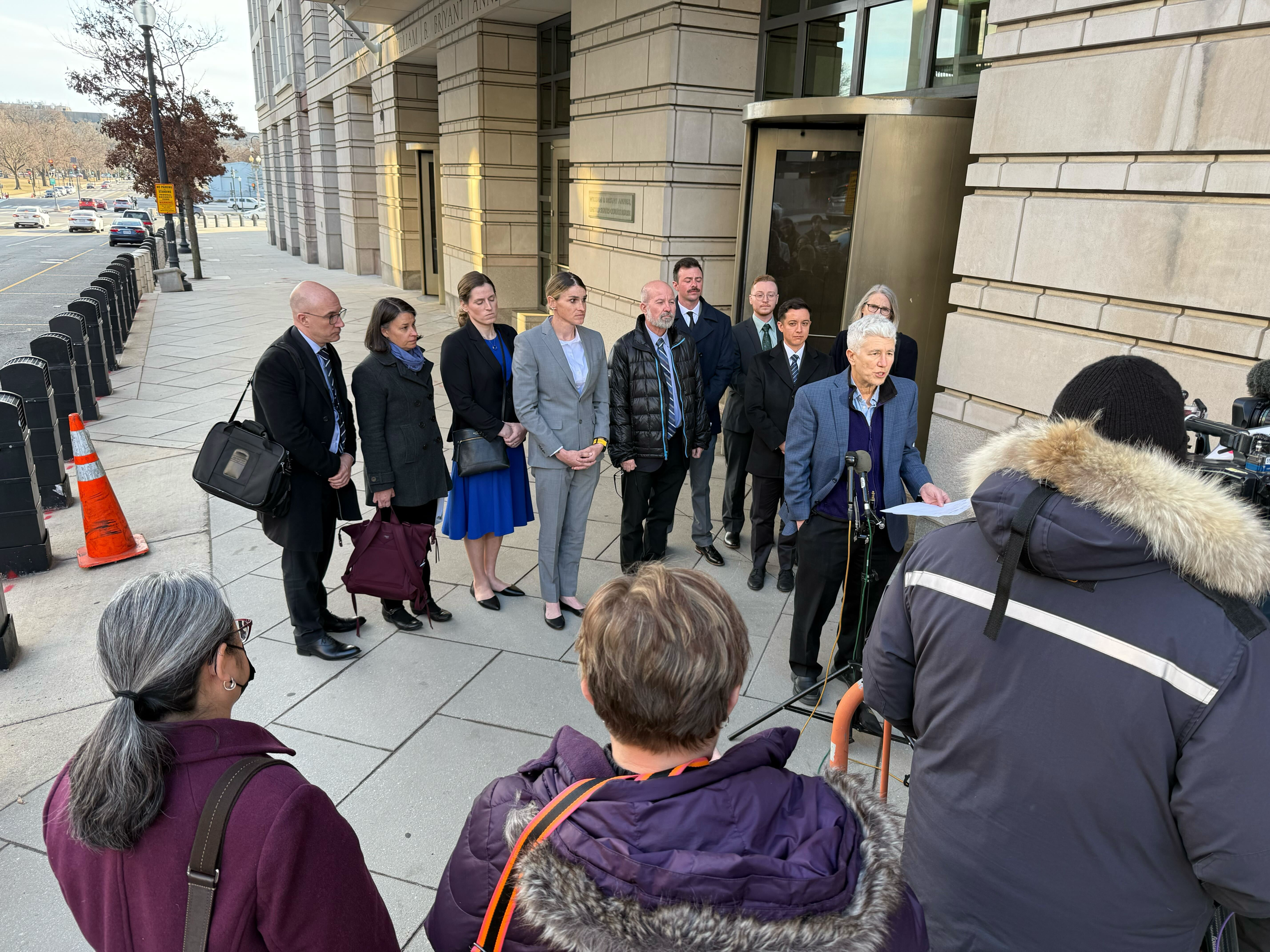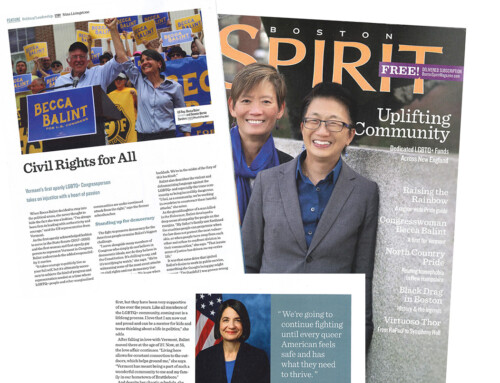GLAD Law’s Jennifer Levi sees the way forward
By Nina Livingstone, published in the May | June 2025 edition of Boston Spirit Magazine
“GLAD Law anticipated that the Trump administration would immediately begin rolling back protections for LGBTQ+ people,” said Jennifer Levi, the senior director of Transgender and Queer Rights. “However, even with our preparations, the level of hostility and cruelty has been sobering.”
When the “gender ideology” executive order was announced during Donald Trump’s inauguration, Levi said the first calls came from loved ones of incarcerated transgender women who faced transfers to men’s prisons.
GLAD Law moved quickly and began litigation, with federal courts stepping in to say “that cannot happen, and the Bureau of Prisons is complying with those orders,” Levi said.
“From a litigation perspective, we’re actually winning many of the early battles. We’ve secured an injunction against the military purge, and courts have halted the executive order denying federal funding to healthcare institutions that provide medical care for transgender adolescents. There is an immense amount of work to do that remains and continues,” she said.
As GLAD Law approaches its 50th year of advocacy, Levi points out that transgender rights work has been there since close to its founding, although it became more formalized and focused in the late 1990s.
“Our strategy operates on multiple fronts: we’re simultaneously working to protect progressive state laws from erosion while providing resources to help individuals defend their rights. Our approach is to stop what we can, delay what we can’t immediately stop, and build resources for harm reduction where necessary,” Levi said.
Executive Orders 101
While executive orders are “powerful tools that set policy and priorities for the federal government, they’re not the same as laws passed by Congress,” said Levi, who is a graduate of the University of Chicago Law School and a law professor at Western New England University. “The Constitution gives the executive branch the responsibility to enforce laws, not create them. So while EOs can significantly impact federal agencies … they cannot override existing federal laws or constitutional protections.”
Levi believes the community needs to “hear these harmful EOs as a clear call to action. When rights are threatened or communities targeted, that’s precisely when we must organize, mobilize resources, and channel our outrage into strategic resistance. The road ahead may be difficult, but our community has faced and overcome challenges before through collective action and resilience,” she said.
“What’s crucial for our community to understand is that these EOs can be challenged in court, reversed by future administrations, or superseded by congressional action,” she further explained. “This is why community involvement matters so much right now—supporting legal defense organizations, contacting representatives to push for legislative protections, and staying informed about your rights. Remember that many state and local protections remain in place regardless of federal actions.”
When asked specifically about Executive Order 14168, which withdraws federal recognition for transgender people, Levi said that although multiple lawsuits have successfully enjoined some provisions, “the damage is substantial—healthcare institutions, service providers, shelters, prisons, the military, schools, and even states, have lost critical funding and been forced to change policies, severely weakening an already fragile support systems for transgender Americans.
“The pattern is clear: these orders methodically strip away protections from vulnerable communities while emboldening discrimination. And unfortunately, all indications suggest more are coming,” she said.
“When rights are threatened or communities targeted, that’s precisely when we must organize, mobilize resources, and channel our outrage into strategic resistance. The road ahead may be difficult, but our community has faced and overcome challenges before through collective action and resilience”
~Jennifer Levi, Senior Director of Transgender and Queer Rights, GLAD Law
Moving Forward
The LGBTQ+ community has “reasons for both concern, serious concern, but also hope,” Levi said. “My view is that democracy, the rule of law, and separation of powers, at least for now, while being sorely tested, are holding. We need to, of course, expect to hit bumps in the road, maybe even potholes or even some land mines. Appellate courts are unlikely to uphold all the trial court wins. But these legal victories give us precious time to shore up failing structures and build new ones.”
Levi said her family understands her grueling schedule, a life she describes as a “whirlwind” since Jan. 20, with work filling more of her days.
“My daily focus has shifted dramatically. I’m in court way more often and in many more jurisdictions than before,” she said. “I’m not proud to report that my exercise regimen has become more aspirational than actual these days. My family has been super supportive and understanding about my more restrictive availability, though I think my dog misses me. At least I hope so.”
Levi said that amid the intensity, there’s also been something genuinely energizing about feeling the community rally.
“Overall, the support has been remarkable, people showing up for each other in ways that maybe no one could have anticipated. Even with the exhaustion and constant challenges, I find myself motivated by the work and all being in it together. We’re not just responding to crises, we’re creating something more resilient for the future, even when the path forward isn’t clear.”







